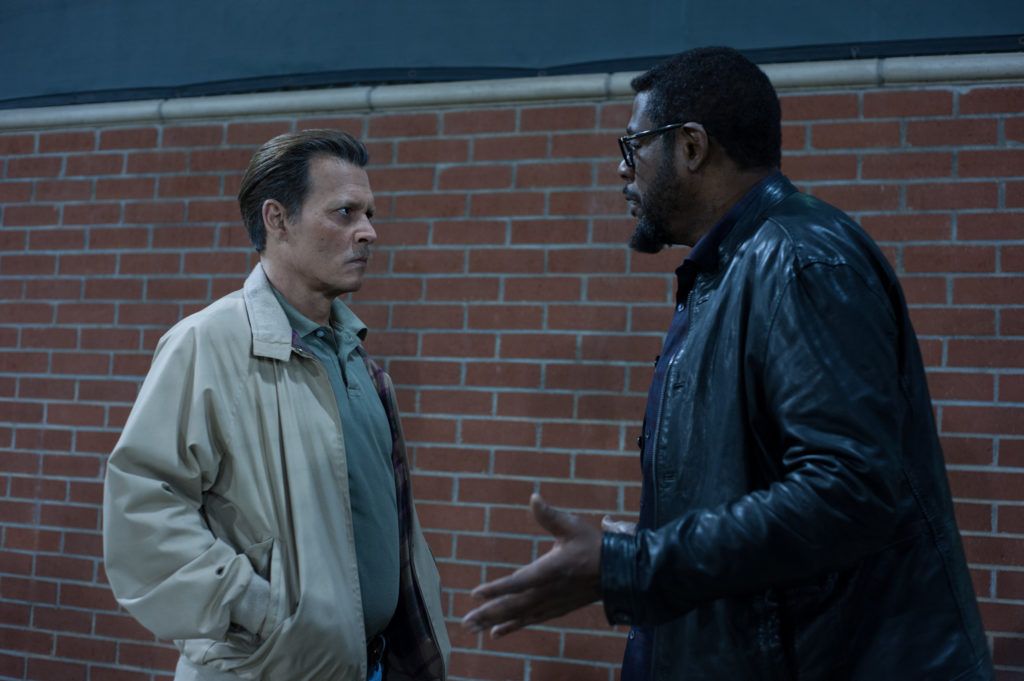City of Lies

Johnny Depp and Forest Whitaker star in CITY OF LIES. (Photo: Saban Films)
Was the 1997 shooting death of New York rapper Biggie Smalls — a.k.a. The Notorious B.I.G. — simply retaliation amid a bicoastal gang war that surfaced with the murder of California native Tupac Shakur months earlier?
With investigations yielding no formal arrests or convictions to this day, City of Lies shares the widespread conjecture that there’s more to the story.
However, rather than providing a bombshell expose, this gritty detective drama from director Brad Furman (The Lincoln Lawyer) doesn’t seem as concerned with solving the crime as it does rehashing old evidence and theories about police corruption and institutional coverups.
The story is told through the perspective of Randall Poole (Johnny Depp), a disgraced ex-LAPD investigator who remains obsessed with the case more than 20 years later, although his quest for justice has been muted by his own cynicism over seemingly insurmountable bureaucratic obstacles.
“I’m very good at connecting dots,” he boasts to Jack Jackson (Forest Whitaker), an ostracized journalist still poking around for a scoop or a breakthrough regarding the cold case.
Poole insists that at the time, department higher-ups were less concerned with truth and justice than about saving face and image rehabilitation on the heels of the high-profile Rodney King and O.J. Simpson debacles, as well as the internal Rampart scandal.
Extensive flashbacks flesh out the specifics of Poole’s claims, specifically the involvement of complicit undercover officers linked to security detail for record label Death Row Records at the time of the drive-by shooting.
The film examines the crime through a fresh set of eyes, but those eyes belong to a character not especially compelling on his own. As a result, the mildly taut procedural remains emotionally detached.
On a broader level, rookie screenwriter Christian Contreras — who based his intriguing yet convoluted screenplay on a book by journalist Randall Sullivan (supposedly the basis for the Jackson character) — explores the volatile evolution of racial politics in Los Angeles during the 1990s.
Plagued by post-production legal issues and release delays, City of Lies merely scratches the surface in reaffirming the reasons why the case will probably never be definitively solved.
Various documentaries about the Tupac and Biggie murders have been accused of speculation and embellishment in placing blame. That’s likely the case here, too, but to what extent? You might not know, but worse, you probably won’t care.
Rated R, 112 minutes.